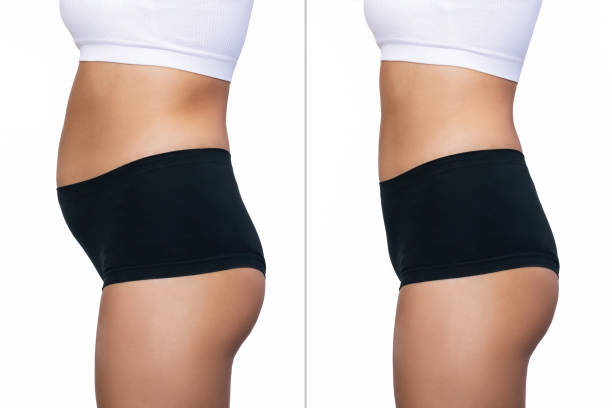
Understanding the Basics of Weight Gain and Muscle Building
It’s essential to understand the basics when it comes to weight gain and muscle building. Weight gain occurs when we consume more calories than we burn, accumulating excess fat in our bodies. However, muscle growth is a different process altogether. Building muscle requires resistance training, proper nutrition, and rest. Although gaining muscle and losing fat simultaneously is possible, it’s important to note that when gaining weight or muscle often comes with some fat gain. Understanding these fundamentals can help you approach your fitness journey with a more evident mindset and realistic expectations.
What Causes Weight Gain During Strength Training
Despite the numerous benefits of strength training, many individuals still struggle with weight gain, which can be frustrating and discouraging. If you’re experiencing this problem, then you’re not alone. We will explore the various reasons why weight gain happens during strength training and how to minimize it.
1. Muscle Growth and Water Retention
Muscle growth is one of the most common reasons people gain weight during strength training. This process involves the buildup of muscle tissue, which can weigh more than fat. When you exercise, your muscles become more active, and the repair begins. This process can cause your muscles to retain more water, leading to weight gain on the scale. This is especially true for beginners who have just started strength training.
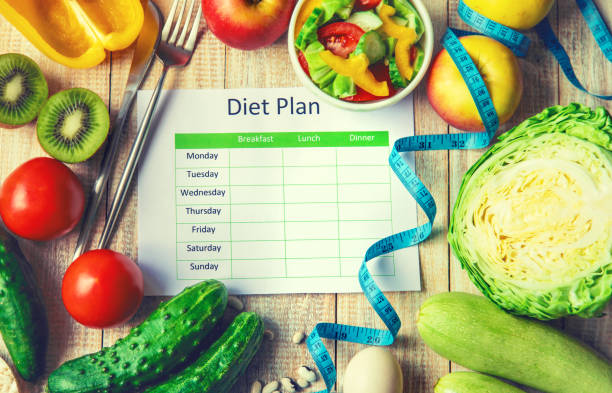
2. Caloric Intake
Another reason why weight gain occurs during strength training is because of caloric intake. When you engage in strenuous exercise or weightlifting, your body requires more calories to function and recover. If you’re not careful enough calories yourself, you may consume more calories than you need, leading to weight gain. Therefore, eating a balanced diet and tracking your caloric intake is essential to prevent unnecessary weight gain.
3. Hormonal Changes
Hormonal changes are another major cause of weight gain during strength training. Exercising for extended periods can stimulate your body to release the hormone cortisol, leading to water retention and fat storage. This hormone can cause your body to hold onto weight, specifically gain fat in the abdominal area, leading to weight gain.
4. Lack of Sleep and Rest Days
Lack of sleep and rest days can also contribute significantly to weight gain during strength training. Sleep deprivation can increase levels of hunger hormones leptin and ghrelin, leading to more snacking and calorie intake. Conversely, rest days are essential to muscle recovery and repair, regulating your hormones and restoring energy levels.
5. Genetics
Lastly, genetics can contribute to weight gain during strength training. Some individuals or muscle group may be predisposed to gain weight more quickly than others due to their metabolism or other factors. However, genetics doesn’t mean you’re trapped— it can simply affect how you approach your training program and nutritional habits.

Why is maintaining muscle gain important?
1. Prevent Muscle Loss
As previously mentioned, your muscles will shrink and weaken when you stop exercising. Some people may lose up to 10% of their muscle mass within a week of not working out. This is why keeping up with some activity level is important even when you’re not hitting the gym. Whether you do home workouts, go for a run or try yoga, you should maintain an active lifestyle to prevent muscle and fat loss anyway.
2. Avoid Fatigue
Muscle fatigue is one of the most common reasons many people give up their workout routines. When you have a good muscle mass, staying active and avoiding fatigue is easier. On the other hand, when you experience muscle loss, your body will begin to work harder to perform the same activities that were easier before. This results in muscle weakness, fatigue, and general body exhaustion.
3. Faster Recovery
Many bodybuilders often experience muscle injuries or strains due to their intense workouts and exercises. Your recovery time is usually faster when you have a higher muscle mass. Therefore, if you maintain your muscle mass, you will likely experience faster recoveries in the event of an injury or strain.
4. Improved Self-Confidence
Let’s be honest; there’s nothing like seeing your body transform and increase in strength. When you maintain your muscle mass, you can easily maintain that self-confidence and positive body image that comes along with it. This is important for your mental health and overall well-being.
5. Better Metabolism
If you’re an active bodybuilder, you know that muscle mass can greatly improve your metabolism. Your body burns more calories when you have a higher muscle mass. This means that even when you’re not working out, maintaining a good amount of muscle will help you move extra calories, keep your metabolism levels high and improve your overall physique.
What Hormones Promote Muscle Growth?
The major hormone responsible for muscle growth is testosterone. Testosterone is an androgenic hormone that increases protein synthesis in the body, which leads to muscle growth. However, if your body’s testosterone level is low, you might find it more difficult to build muscle mass. Therefore, it’s important to maintain an adequate testosterone level by engaging in regular exercises that stimulate its production.
Growth hormone (GH) is another hormone that plays a key role in muscle growth. It increases protein synthesis and enhances the body’s rate of burning fat. To stimulate the production of GH, you should perform high-intensity exercises like weight lifting, sprinting, and high-intensity interval training.
Insulin-like growth factor (IGF-1) is also essential for muscle growth. Under the influence of GH, the liver produces IGF-1 to boost protein synthesis, which, together with testosterone, promotes muscle growth. To increase IGF-1 production, it’s recommended that you consume enough protein in your diet.
Consuming protein is important because it helps to repair and build muscle tissue, and amino acids are the building blocks of protein. Therefore, including protein in your diet regimen is essential, especially during post-workout meals. High-quality protein sources include lean beef, poultry, fish, and dairy products like eggs and milk.
Consuming healthy fats, such as Omega-3 fatty acids in foods like fish, nuts and seeds, and olive oil is important. Healthy fats help to regulate hormone production, which is important for muscle growth. They also help reduce inflammation and support healthy joints, essential for weight training.
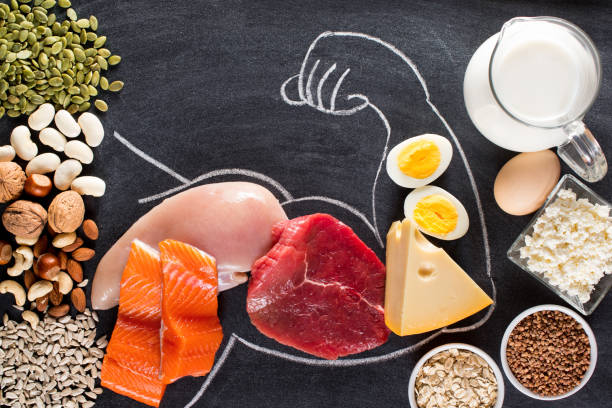
Dieting to Gain Muscle Without Fat
1. Increase Protein Intake
For bodybuilders, protein is the most crucial nutrient for muscle building. A high protein diet helps repair and build muscles and maintain lean muscle mass while losing body fat. Aim to consume at least 1g of protein per pound of body weight daily, spread evenly throughout the day, from sources such as lean meats, eggs, fish, and dairy products. Additionally, supplementing with high-quality protein powders can help you reach your daily protein intake goals.
2. Consume More Complex Carbohydrates
Although carbohydrates have been given a bad reputation in recent years, they are still essential to a balanced bodybuilding diet. However, not all carbs are created equal, and complex carbohydrates are recommended for bodybuilders looking to gain muscle without fat. Complex carbohydrates such as whole grains, brown rice, and sweet potatoes provide slow-release energy, making you feel full for longer and keeping blood sugar levels stable.
3. Don’t Skimp on Healthy Fats
While healthy fats, such as omega-3 fatty acids, often get overlooked in a bodybuilding diet, they are crucial for overall health and muscle gain. Omega-3s in fatty fish, flaxseed, and chia seeds can help reduce inflammation, improve insulin sensitivity, and promote muscle growth. Additionally, consuming moderate amounts of healthy fats can help keep you fuller for longer, preventing cravings and overeating.
4. Track Your Macros and Calories
To effectively diet to to gain muscle without gaining fat, tracking your macros and calories is essential to ensure you’re in a caloric surplus yet not consuming too many calories. Use online tools to calculate your daily caloric needs, aim for a small caloric surplus of around 250-500 calories, and track your protein, carbohydrate, and fat intake. This will help you stay on track with your bodybuilding goals and avoid unwanted fat gain.
5. Timing is Key
To optimize muscle growth and minimize fat gain, paying attention to meal timing is essential. Always eat a pre-workout meal that comprises complex carbohydrates and protein to provide energy and promote muscle protein synthesis. Post-workout, consume a protein shake within 30 minutes to refuel muscles and boost recovery. Additionally, eating frequent meals throughout the day, instead of two or three larger meals, can help to maintain steady insulin levels, preventing fat storage.
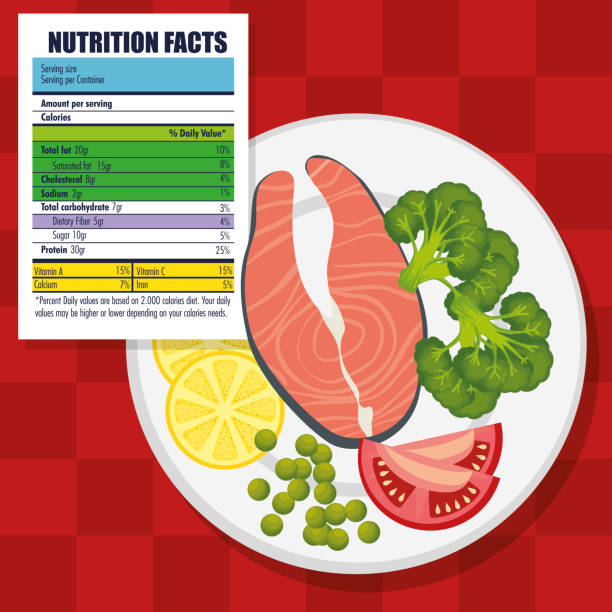
Sample Meal and Workout Plan for Lean Muscle Gain
Building lean muscle requires dedication and consistency in eating habits and exercise routines. We all know it takes more than a gym membership to gain muscle; our diet plays a significant role. We’ll share a practical guide that bodybuilders can follow to gain lean muscle. We will provide you with tips on meal planning and a workout plan that you can execute daily to speed up the process. Keep reading to revolutionize your training routine.
1. How to Meal Plan for Lean Muscle Gain
If you are trying to bulk up, you must plan your meals carefully and consume more calories than you burn. Eating foods rich in protein, carbohydrates, and healthy fats is essential to support muscle growth. Here’s a sample meal plan for lean muscle gain:
– Breakfast: Scrambled eggs, a slice of whole-grain toast, avocado, and a glass of orange juice
– Mid-morning snack: Greek yoghurt with granola and berries
– Lunch: Grilled chicken breast, brown rice, and broccoli
– Mid-afternoon snack: A protein shake with added vegetables
– Dinner: Grilled salmon, sweet potato, and green beans
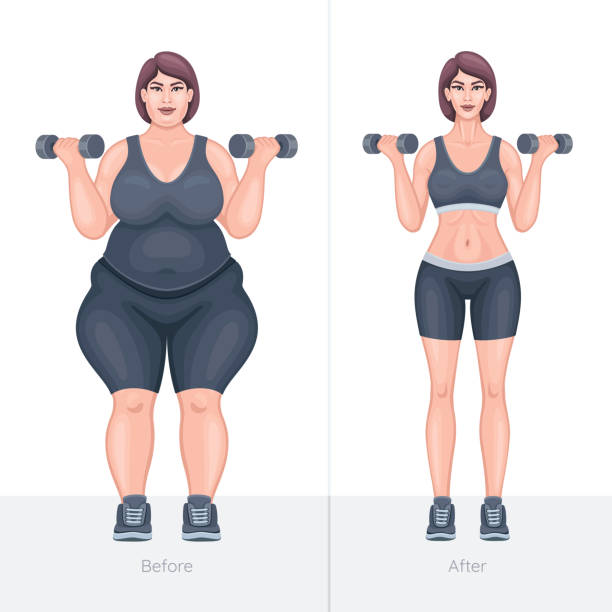
2. Essential Nutrients for Lean Muscle Gain
Protein: Eating sufficient protein is essential for building and repairing muscle tissue. Aim to consume around 1-1.5 grams of protein per pound of body weight. Foods such as chicken breast, turkey, fish, and eggs are excellent protein sources.
Carbohydrates: Carbs are the primary source of energy for intense workouts. Good sources include whole-grain bread, oats, fruits, and vegetables. Avoid processed foods, as they can lead to insulin resistance.
Healthy Fats: Fats are essential for muscle growth and cell repair. Healthy sources include avocados, nuts, seeds, and olive oil. Avoid trans and saturated fats as they can lead to heart disease.
3. Training for Lean Muscle Gain
A combination of weight lifting and cardio exercises is crucial to building lean muscle mass. You could start with a 30-minute cardio routine before lifting weights. Here’s a summary of a sample week-long workout plan for both lean body mass and muscle gain:
– Monday: Back and Biceps
– Tuesday: Cardio (running or cycling)
– Wednesday: Rest day
– Thursday: Chest and Triceps
– Friday: Shoulders and Abs
– Saturday: Legs and Glutes
– Sunday: Rest Day
The optimum level of body fat for maintaining muscle gaining
Bodybuilders are always on the lookout to achieve the perfect physique. The perfect body composition is a combination of lean muscle mass and the right level of body fat. It is widely believed that the ideal level of body fat that would allow you to maintain muscle mass while losing weight is between 8-12% for men and between 18-22% for women. However, is this the right level of body fat for all bodybuilders? We’ll discuss the optimum level of body fat for maintaining muscle gains.
1. Understand Your Body Type
Bodybuilding is not a one-size-fits-all approach. Every bodybuilder’s physique is different; therefore, your optimum body fat level will also differ. If you’re an ectomorph, you’ll need a higher body fat level than an endomorph to maintain muscle mass. Ectomorphs have a fast metabolism and find it difficult to gain weight, so a higher body fat percentage would provide the essential energy source needed to maintain muscle gains. Endomorphs, on the other hand, gain weight quickly but find it difficult to lose it, so they should aim for a lower level of body fat.

2. Consider the Number of Calories You Need
The number of calories you consume plays a significant role in determining your optimum level of body fat. If you consume more calories than your body needs, you’ll gain weight; if you consume fewer calories than your body needs, you’ll lose weight. However, eating how many calories or too few calories can lead to muscle loss, making it an unfeasible option for bodybuilders. Therefore, the optimum level of body fat is determined by the balance between the number of calories you consume and the number of calories you burn.
3. Focus on Progressive Overload
Progressive overload is the principle of gradually increasing weight in your weight training regime. Over time, the weight added increases muscle mass. However, to avoid muscle loss during weight loss, it’s necessary to maintain a higher level of intensity. This higher level of intensity causes increased stress on the muscles and, in turn, increases muscle mass. Bodybuilders should focus on regular weight training and progressive overload to maintain muscle mass.
4. Don’t Forget to Stay Hydrated
Staying hydrated is an essential factor for bodybuilders and plays a significant role in determining the optimum level of body fat. Hydration helps maintain muscle mass as it increases the storage of glycogen. Glycogen is an energy source used during exercise and helps maintain muscle mass. Drinking plenty of water throughout the day also helps to flush out toxins and maintain the kidneys’ function, which is essential.
5. Importance of Rest Days
Rest is just as important as exercise, and bodybuilders must ensure they get enough rest days. Rest days help muscles repair themselves and rebuild muscles, increasing muscle mass, even with lower body fat. Overtraining can lead to muscle loss, so rest days are crucial.
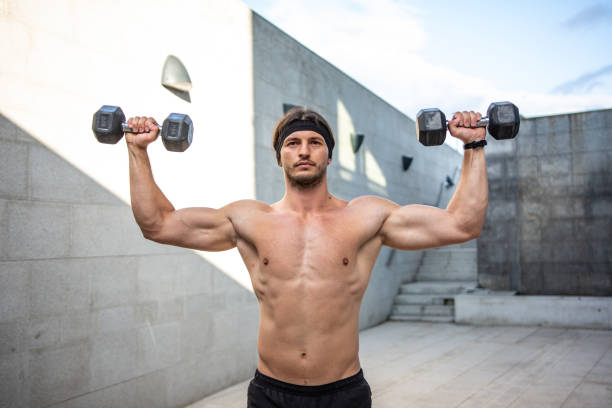
Best Weight Training Exercises to Gain Muscle Without Fat
If you are a bodybuilder or looking for how to gain muscle without gaining fat too, you already know the importance of weight training exercises in achieving your goals. However, gaining muscle without accumulating excess fat requires understanding the right weight training exercises to help you reach your fitness goals while maintaining a lean physique. We will discuss some of the best weight-training exercises that can help you increase muscle mass without adding unwanted fat.
1. Squats: Squats are one of the most effective weight training exercises to build muscle without fat. They help to stimulate muscle growth in the legs, glutes, and core while promoting natural hormone production responsible for muscle growth. Squats also help to increase your metabolism, which helps to keep unwanted fat at bay. Incorporate three to four sets of squats into your weight training routine to see significant gains in muscle over time.
2. Deadlifts: Deadlifts are another excellent weight training exercise to help you lose fat and gain muscle mass without fat. Deadlifts work various muscle groups, including the hamstrings, back, glutes, and core, making it a very effective compound exercise. Deadlifts also promote hormonal balance, which helps to build muscle and reduce fat. Aim to do three to four sets of this exercise a couple of times weekly for the best results.
3. Bench press: To build upper body strength, look no further than the bench press. This weight-training exercise targets your chest, shoulders, and triceps, which helps define and create muscle bulk in the upper body. As with all other weight training exercises, ensure enough rest between sets to avoid overworking your muscles.
4. Pull-ups: An efficient compound exercise that engages your back, biceps, and core. This weight-training exercise can help you build upper body strength and size without adding any extra body fat. If you’re not used to pull-ups, start with the assistance of a machine to make it easier for you.
5. Lunges: Lunges are an excellent weight training exercise for developing the lower body. This exercise is especially effective in building the hamstrings, quads, and glutes. Not only do lunges help to build muscle, but they also improve flexibility and balance, making them an excellent exercise for overall body strength.
Conclusion;
If you’re on a quest for a healthier weight and muscle gain, taking a balanced and measured approach is essential. Achieving your goals cannot happen overnight, and patience’s crucial throughout the process. Although it may be tempting to make drastic changes to your lifestyle, it’s essential to remember that slow and steady progress is the best way to attain sustainable results. Balancing exercise with a well-rounded diet and proper rest and self-care is crucial in reaching your healthy weight and muscle gain goals. Your body needs time to adapt and grow, so don’t be discouraged if progress seems slow initially. With patience and persistence, you can achieve your fitness objectives healthily, supporting your overall well-being.


Leave a Reply